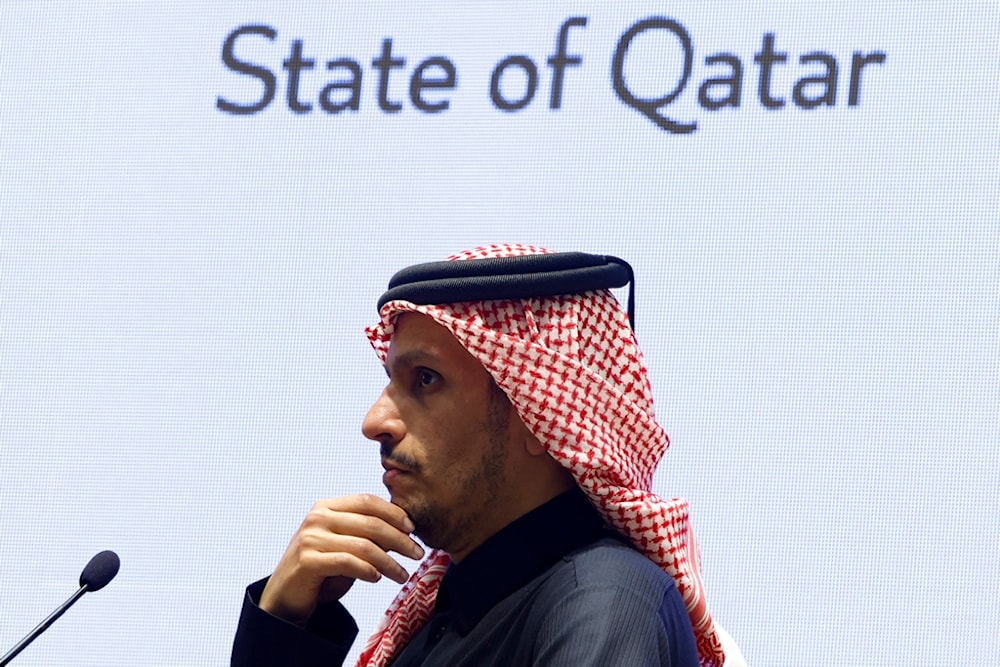Gaza ceasefire negotiations 'not really promising': Qatari PM
Urging an acceleration in talks to establish a ceasefire before March 10, which signifies the beginning of the Muslim Holy Month, Ramadan, the Qatari PM stressed that time is running out.
-

Qatar's Prime Minister and Foreign Minister Sheikh Mohammed bin Abdulrahman Al Thani looks on as he attends a press conference with U.S. Secretary of State Antony Blinken, January 7, 2024 (AP)
Qatar's Prime Minister Mohammed bin Abdulrahman Al-Thani said at the Munich Security Conference that a ceasefire between "Israel" and Hamas does not seem "very promising".
Although he expressed optimism about seeing a deal between the two parties being brokered soon, he also said "The pattern in the last few days is not really very promising. We will always remain optimistic, we will always remain pushing."
Urging an acceleration in talks to establish a ceasefire before March 10, which signifies the beginning of the Muslim Holy Month, Ramadan, the Qatari PM stressed that time is running out.
He also emphasized that the main driver for the ceasefire should not be a captive release deal after sharing the possibility of a deal that entails the humanitarian relief aspect of the war but is conditioned to the number of captives and prisoners that would be exchanged.
"This is the dilemma that we've been in and unfortunately that's been misused by a lot of countries -- that to get a ceasefire, it's conditional to have the hostage deal. It shouldn't be conditioned," he said.
On the regional scale, Al-Thani said that further delays in reaching a deal could escalate tensions in the region.
'Israel' rejects Hamas' ceasefire proposal
It is worth noting that Hamas submitted a response that maintained the necessity of "a comprehensive and complete ceasefire, ending the aggression against [the Palestinian people], securing relief, shelter, reconstruction (projects), lifting the siege on the Gaza Strip, and completing the process of a prisoner exchange [deal]."
The Israeli occupation rejected the ceasefire proposal made by Hamas days earlier, which entails the release of all Israeli captives and the cessation of hostilities in Gaza over three stages.
As reported by Axios, which cited two Israeli officials, the Israeli occupation regime told the Qatari and Egyptian mediators that it rejected the ceasefire proposal but it was still open to talks based on the original proposal discussed in late January.
The Israeli occupation's response, namely the fact that it is still open for talks, goes against what embattled Prime Minister Benjamin Netanyahu and numerous of his far-right government ministers have been saying about there being no ceasefire without the destruction of the Hamas Resistance movement.
That itself is an indication that the Israeli regime does not think the military option is viable.
A source within the Resistance in the Gaza Strip revealed to Al Mayadeen on Tuesday that the Israeli occupation is attempting to hollow out the contents of the Paris Document and achieve progress on the captive-prisoner exchange without "paying the price demanded by the Resistance."
Read more: Exclusive-Hamas, PIJ: No one can force terms on Palestinian Resistance

 3 Min Read
3 Min Read








